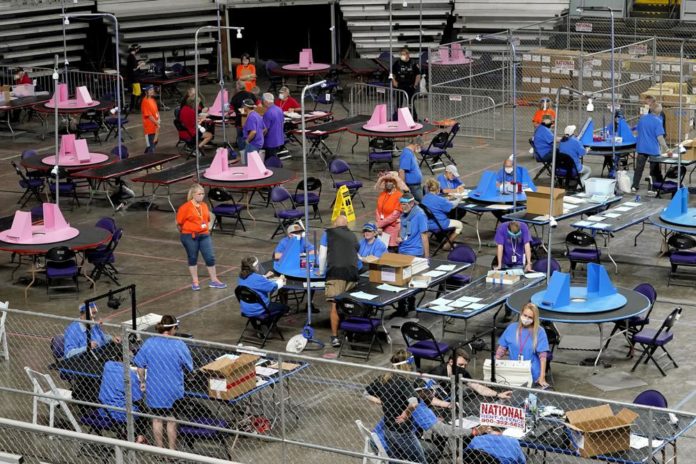
An Arizona judge on Tuesday ordered the state Senate to immediately provide text messages and emails related to the Senate Republicans’ partisan review of the 2020 vote count.
Maricopa County Superior Court Judge John Hannah said he will review the records and decide whether they must be given to The Arizona Republic, which has requested them under the state’s public records law. The Senate’s GOP leaders say the records don’t have to be publicly disclosed because of legislative privilege, which is meant to promote frank and honest debate among lawmakers.
The Republic has good reason to believe that legislative privilege does not apply to at least some of the records, Hannah wrote in a 13-page ruling.
Kory Langhofer, a lawyer representing the Senate, said the records were given to the court. The judge’s ruling did not say how long he would take to review them and decide whether they should be given to the newspaper.
The Senate has publicly released thousands of records but is holding onto those it considers privileged. The judge’s ruling applies to six sets of documents the Senate claims are privileged. Those include texts between Senate President Karen Fann and Phil Waldron, who has promoted false claims that the election was marred by fraud. It also includes texts between Doug Logan, the who led the election review, and Randy Pullen, one of the Senate’s liaisons, as well as notes on a draft contract with Shiva Ayyadurai, who was hired to review images of mail-ballot envelopes.
The case is one of two public records lawsuits seeking documents related to the unprecedented partisan election review. The other lawsuit was filed by the government watchdog group American Oversight, which is also fighting against the Senate’s claims of legislative immunity over about 1,000 records.
Meanwhile, Hannah also issued a second order saying Cyber Ninjas, the cybersecurity contractor the Senate GOP hired to run its election review, will have to provide records in its possession. The judge has rejected the company’s argument that it is not bound by the public records law because it is a private company.
The Arizona Court of Appeals has upheld that ruling, saying Cyber Ninjas is subject to the records law because it was performing a core government function that the Senate farmed out. The state Supreme Court declined to take the case.
Republished with the permission of the Associated Press.












